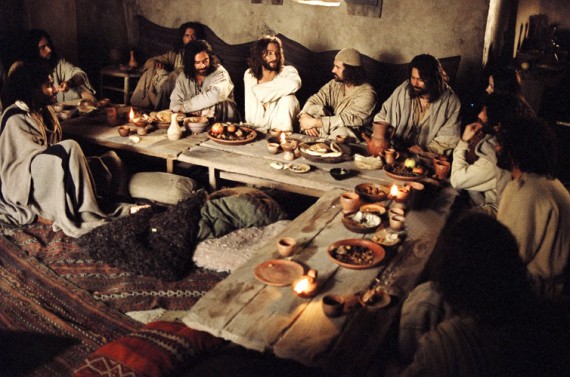Pages 883-884 … the clueless Disciples
“All of the disciples of Jesus agreed and said that we should confess our sins to one another and repent.”
My dear Friend, the word “repent” that you read in your Bible (the word that you have been incorrectly taught calls for an intellectual remorse for wrongdoings &/or a verbal confession of sins) is actually the Greek word metanoeo in the Scriptures (see Strong’s #3340) – a word that had absolutely nothing to do with guilt or shame or self-criticism, and everything to do with humbly & actively making a complete shift of behavior; namely – in your present case, shifting your focus away from arrogantly being certain that homosexuals are going to Hell (and publicly telling them the same) and towards humbly reaching out to them with silent acts of selfless Kindness (like Jesus did with the sinning adulteress in John 8:1-11).
P.S. Jesus’ disciples, by the way, most certainly did not fully agree on everything (certainly not the meaning & the ramifications of “repentance”). Indeed, they actually showed over & over & over again in the Scriptures that they had essentially no clue at all as to what Jesus was trying to share during his ministry – and this, even after his death & resurrection! In truth, the Bible itself consistently shows that (with the possible exception of an extremely nuanced reading of the Gospel of John) Jesus’ apostles were not the cleverest of people, and that they frequently failed to comprehend even the most fundamental aspects of The Way he was showing them …
Please consider the following examples from the Scriptures that prove this point:
*After the feeding of the four thousand, Jesus admonished the disciples to “Beware the yeast of the Pharisees” (see Mark 8:14-21), whereupon the disciples quite densely assumed that he was warning them of the actual yeast used by Pharisee bread-makers. Matthew then explains what most of us knew already – that Jesus was speaking about the spiritual doctrines of the Pharisees and not their poor bread-making skills (see Matthew 16:12). And yet we are left to wonder how it could be that the disciples – men who had spent significant time listening to Jesus teach, watching Jesus live, and actually living with him – could make such an embarrassing mistake.
*Shortly thereafter, Jesus proclaimed that he was the “bread of life” (a powerful symbolic reference he liked to use when speaking about his Way of selfless service and radical Kindness) and that people must “eat of his flesh and drink his blood” in order to experience salvation (see John 6:32-35) … Rather than immediately comprehend that he was speaking of our need to fully embody and courageously emulate the radical form of selfless LOVE he was offering, the disciples were instead confused – thinking that Jesus was speaking literally about some imminent act of cannibalism – and complained amongst themselves about this “difficult teaching” (see John 6:68).
*Once, after Jesus had called out the Pharisees over their hypocritical obsession with ritual cleanliness, the disciples asked Jesus what he had meant, whereupon he incredulously responded “Are you still so dim-witted?” (see Matthew 15:2-16)
*Another time, after asking the seemingly innocuous question “Who do you think I am?” (see Mark 8:27) his disciples gave him answers that were all over the place. Yes, Peter eventually gave a response that seemed acceptable to Jesus (“You are the Christ” – see Mark 8:29), and yet even Peter obviously didn’t understand what Jesus meant by this title; as evidenced by his incorrect belief that “the Christ” was a conquering military hero (see Mark 8:31), whereupon Jesus (who had been teaching a Way of selfless sacrifice for the downtrodden and unconditional Love even for one’s enemies) sternly rebuked him for this mistake (see Mark 8:33) … And things didn’t get any better for Peter, who – despite believing (as Paul later mistakenly believed) that Jesus was the Davidian Messiah who would save them all and reward them in Heaven thereafter – still ended up denying Jesus three times after his post-Gethsemane abduction! (see Mark 14:66-72)
*In another dramatic example of intellectual ineptitude, we see Jesus telling the disciples quite clearly that they must each take up their own cross of self-sacrifice in order to serve others (rather than be served by them – see Mark 8:34 & Mark 10:45), and then not long afterwards we see the disciples sitting around and cluelessly wondering about which one of them was going to be considered the greatest in the Kingdom to come in the Hereafter (see Mark 9:33-34).
*Shortly thereafter, we see Jesus explaining his Gospel-Purpose to the disciples yet again, and we see the disciples yet again either fully failing to comprehend what he was saying &/or being completely surprised by the same (see Mark 10:24-32).
*And of course, in the greatest showing of their complete miscomprehension of Jesus’ greatness, in the hour of his greatest trial, the disciples all turned, fled, deserted and denied him (see Mark 16:13 & John 20:9).
While this list is not exhaustive, the proof has been made clearly enough – Jesus’ disciples were not only not the brightest of men, they had hopes for Jesus that in no way resonated with his true, self-proclaimed Purpose. And because of this powerful combination of ignorance-inducers, Jesus chose to wait until a very late date (if at all) to speak clearly to them – not only about his revolutionarily moral principles, but also about his revolutionarily courageous plans.
“Do you still not understand? How will you understand all the parables? … Do you have eyes, and yet still fail to see? Do you have ears, and yet still fail to hear?” ~ Jesus Christ (Mark 4:13 & Mark 8:18)
“I have said these things even to you in figures of speech. The hour is coming when I will no longer speak to you in figures, but will tell you plainly of the Father.” ~ Jesus Christ (John 16:25)






 ;
;